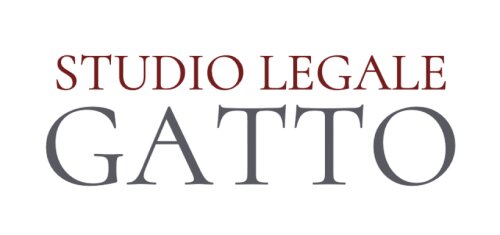Best Employment Rights Lawyers in Milan
Share your needs with us, get contacted by law firms.
Free. Takes 2 min.
List of the best lawyers in Milan, Italy
Italy Employment Rights Legal Questions answered by Lawyers
Browse our 1 legal question about Employment Rights in Italy and read the lawyer answers, or ask your own questions for free.
- I am being repeatedly bullied by a colleague at work
- I am being repeatedly bullied by a colleague at work and despite numerous attempts to get help from my supervisors, nothing has been done. I have also been bullied by my supervisors (lying to me - giving preferential treatment to others - giving me more work - not helped when... Read more →
-
Lawyer answer by Studio legale DSC
The repeated bullying you've experienced is a serious matter.Given the impact on your well-being and your supervisors' involvement, consider consulting an employment lawyer to discuss potential compensation claims like hostile work environment or retaliation.
Read full answer
About Employment Rights Law in Milan, Italy
In Milan, as well as the rest of Italy, employment rights are governed by a series of laws including the Workers’ Statute, Civil Code, and Collective Bargaining Agreements. These laws address matters like contracts, terminations, equality, and discrimination in the workplace. The laws take an employee-centric approach, providing protection against unjust work practices and supporting appropriate work conditions.
Why You May Need a Lawyer
Employment rights issues can often be complex and require experienced legal help. You may need a lawyer if you believe that your rights as an employee have been violated. This could be due to wrongful termination, discrimination in the workplace, employment contract disputes, unpaid overtime, or if you have been a victim of a retaliatory discharge for whistleblower activities.
Local Laws Overview
The Italian employment legal framework is known for being pro-employees and includes a wide range of laws and regulations. The Workers' Statute prohibits discrimination, protects workers' rights, and regulates dismissals. The Civil Code sets out the general provisions of contracts, obligations, and duties for both employees and employers. Italy also has numerous Collective Bargaining Agreements that regulate working conditions, salaries, and benefits for different sectors and professions.
Frequently Asked Questions
What constitutes as wrongful termination in Milan?
Wrongful termination can be seen as any firing that violates the terms of an employment contract or local employment laws. This might include termination as a form of discrimination, or termination without proper cause or due process.
Do I have rights if I have been discriminated against at work?
Yes. The Italian Workers' Statute and other local legislation explicitly prohibit workplace discrimination on the grounds of sex, age, race, religion, personal beliefs, nationality, or sexual orientation. You can take legal action if you have been discriminated against.
Can I claim unpaid wages?
Yes. An employee has the right to claim unpaid wages under the Italian Civil Code, and you can pursue this claim with the help of an employment rights lawyer.
Can my employer cut my benefits without notice?
No. Your employer cannot reduce your benefits or wages without notice and your agreement. Any changes to your contract must be mutually agreed upon and signed by both parties.
What is the role of unions in Italy?
Unions play a significant role in negotiating Collective Bargaining Agreements and in protecting the rights of employees. Union representatives often engage with employer representatives to mediate disputes and find solutions to workplace issues.
Additional Resources
The National Labour Inspectorate (Ispettorato Nazionale del Lavoro) provides a wealth of resources and guidance on employment law. Additionally, local law libraries and legal aid services can provide useful information and support. For specific advice and representation, an employment rights lawyer can be invaluable.
Next Steps
If you believe your rights as an employee have been violated, your first step should be to consult with an employment rights lawyer who can guide you through the process, explain possible remedies, and discuss potential legal strategies. Along with this, it may be beneficial to collect any documentation related to your claims such as contracts, correspondence, and any evidence of your claims. Remember, it's important to act promptly to protect your rights.
Lawzana helps you find the best lawyers and law firms in Milan through a curated and pre-screened list of qualified legal professionals. Our platform offers rankings and detailed profiles of attorneys and law firms, allowing you to compare based on practice areas, including Employment Rights, experience, and client feedback.
Each profile includes a description of the firm's areas of practice, client reviews, team members and partners, year of establishment, spoken languages, office locations, contact information, social media presence, and any published articles or resources. Most firms on our platform speak English and are experienced in both local and international legal matters.
Get a quote from top-rated law firms in Milan, Italy — quickly, securely, and without unnecessary hassle.
Disclaimer:
The information provided on this page is for general informational purposes only and does not constitute legal advice. While we strive to ensure the accuracy and relevance of the content, legal information may change over time, and interpretations of the law can vary. You should always consult with a qualified legal professional for advice specific to your situation.
We disclaim all liability for actions taken or not taken based on the content of this page. If you believe any information is incorrect or outdated, please contact us, and we will review and update it where appropriate.













